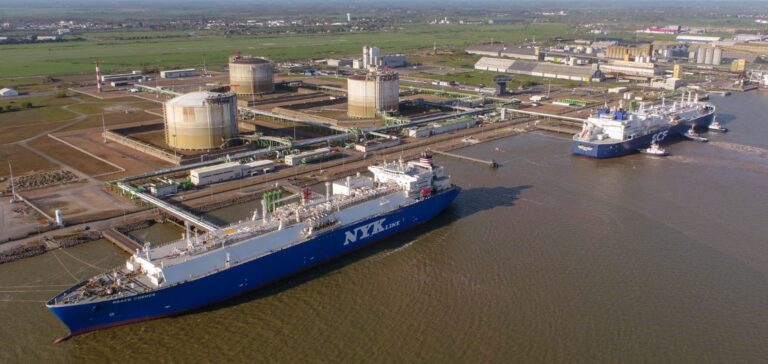France, the leader in Russian liquefied natural gas (LNG) imports in 2024, is preparing for significant changes in its energy flows. Elengy, the operator of three LNG terminals in the country, announced that it has taken steps to comply with the 14th package of European Union sanctions, which came into force in June 2024. These sanctions aim to ban the transshipment of Russian-origin LNG starting in March 2025.
European measures against Russian LNG
Adopted to curb Russia’s influence in the European energy sector, these sanctions also include other restrictions on LNG trade. The European Union has imported approximately 13.9 million tons of Russian LNG since the beginning of the year, including 5.4 million tons by France, according to S&P Global Commodity Insights. These figures represent a significant increase compared to the previous year, underscoring the strategic importance of Russian LNG for France.
Reactions from other European operators
The Zeebrugge terminal in Belgium, operated by Fluxys, recently announced its readiness to implement these sanctions. Cross-border cooperation among operators appears essential to minimizing disruptions in Europe’s energy supply, especially during periods of high winter demand.
Consequences for the European market
In the market, LNG prices for Northwest Europe remain high, reaching $14.27/MMBtu at the end of November 2024, according to Platts data. This situation reflects persistent concerns about supply and increased demand due to colder weather. Future restrictions could exacerbate these tensions, prompting European countries to further diversify their LNG import sources.
As the March 2025 deadline approaches, implementing the sanctions will pose operational and strategic challenges for Elengy and other European players. These measures also highlight the European Union’s commitment to reducing its energy dependence on Russia.






















